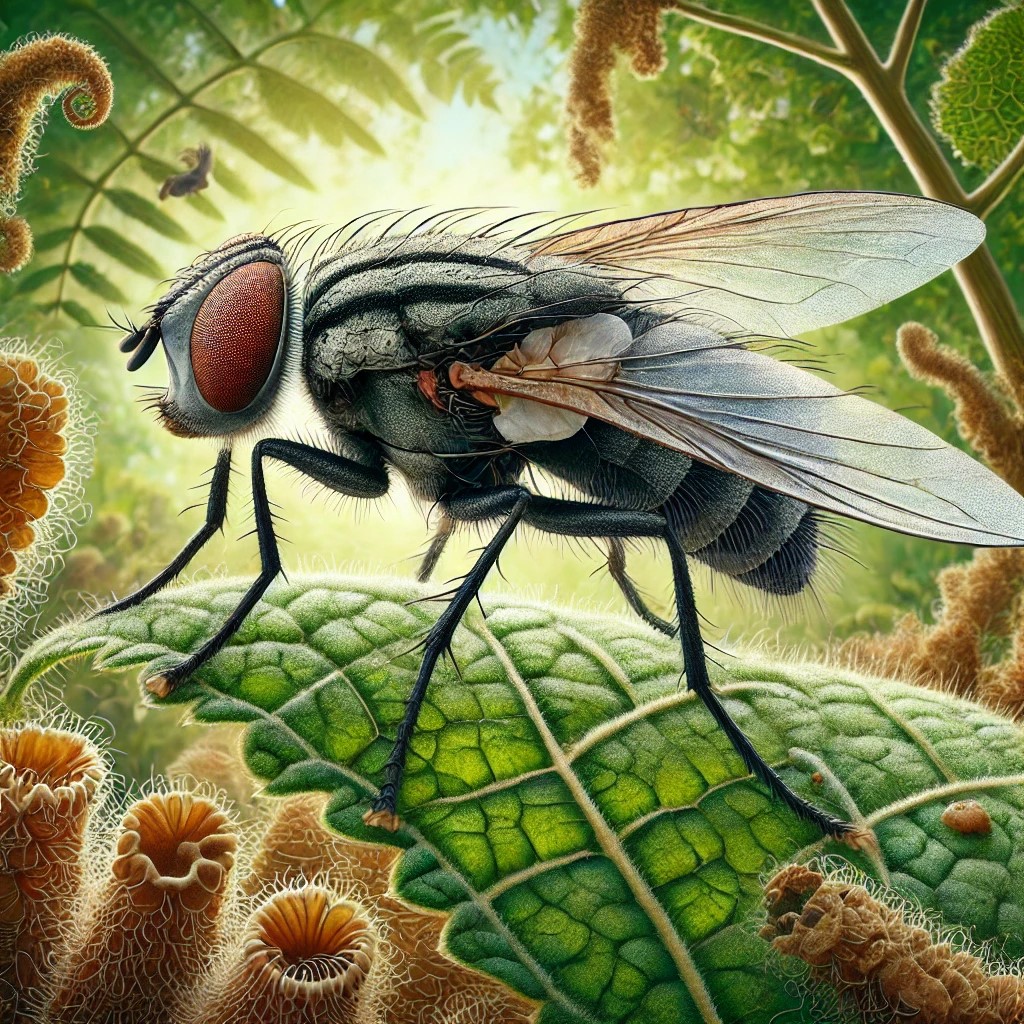
Flies: Essential Actors in the Balance of Our Ecosystem
When we think of flies, the image that often comes to mind is that of an annoying insect, associated with dirt and potential health risks. However, behind that reputation, these small organisms fulfill vital functions in nature that often go unnoticed. From the decomposition of organic matter to accidental pollination, flies are true pillars in maintaining ecological balance.
A Diverse and Ancient Group
Flies belong to the order Diptera, which includes more than 150,000 described species worldwide. It is estimated that there are between 700 million and even 1 trillion individuals, highlighting their abundance and the significant impact they have on ecosystems. This ancient group was among the first to be recognized by humans, partly due to hematophagous species that inspired studies on metamorphosis and other fundamental biological processes.
Key Functions in the Ecosystem
Decomposition and Nutrient Recycling
One of the most important roles of flies is their ability to break down organic matter. In both their larval and adult stages, they feed on rotting fruit, carcasses, feces, and other organic waste, accelerating its decomposition. This process transforms waste into essential nutrients for the soil, preventing the accumulation of organic matter and enhancing the fertility of ecosystems. Without this mechanism, the natural degradation of waste would be an environmental problem of unimaginable proportions.
Pollination and Seed Dispersal
Although they are traditionally associated with filth, some species of flies, such as those in the Syrphidae family, visit flowers in search of nectar. During this process, they transport pollen from one flower to another, inadvertently contributing to pollination and the reproduction of various plant species. Additionally, by feeding on fruits and other invertebrates, some species can assist in seed dispersal, reinforcing their role in flora regeneration.
Vital Link in the Food Chain
The importance of flies also extends to the trophic chain. Both adult flies and their larvae are an indispensable food source for birds, bats, amphibians, reptiles, spiders, and other insects. This biomass availability makes flies a fundamental link in sustaining numerous animal populations that depend on them for the energy necessary to survive.
Environmental Health Indicators
The presence or absence of certain fly species can reveal the health status of an ecosystem. For example, an unusual proliferation may indicate the presence of decomposing organic matter or even pollution problems. In this sense, flies act as bioindicators, helping to identify imbalances and guide conservation efforts.
Pests or Allies?
It is undeniable that some species of flies can pose a risk to human health, as they act as vectors of bacteria and viruses (such as salmonella or dysentery) when moving between unsanitary environments and inhabited areas. However, the problem does not lie in the mere existence of flies but in the imbalance that occurs when their populations grow uncontrollably, especially in urban environments. The key is to properly manage waste and implement integrated control strategies that keep their presence at levels compatible with public health and ecological balance.
Sustainable Coexistence and Responsible Control
Managing flies does not mean their total eradication, as this would destabilize fundamental ecological processes. Instead, responsible control seeks to allow their benefits without them becoming an excessive nuisance or a health threat. This includes:
- Proper waste management: Reducing the accumulation of organic matter and preventing fly proliferation in sensitive areas.
- Use of integrated methods: Combining traditional techniques with technological innovations for effective and environmentally respectful control.
- Constant monitoring and evaluation: Using biological indicators to detect imbalances and act preventively.
Far from being merely annoying insects, flies fulfill essential functions that enable the degradation of organic matter, plant pollination, and the sustenance of food chains. Understanding and valuing their role in the ecosystem invites us to reconsider our relationship with these organisms and adopt strategies that promote harmonious and sustainable coexistence.
At Eco Fauna Control, we understand that pest control goes beyond simply eliminating an inconvenience. We are committed to providing comprehensive and responsible solutions that protect people’s health and the natural balance. Our team of experts uses innovative and sustainable methods for managing flies and other pests, adapting to the specific needs of each environment—whether residential, commercial, or industrial.
We believe that prevention and education are key to harmonious coexistence with the environment, which is why we strive to offer personalized advice and use state-of-the-art technologies that minimize environmental impact. If you want to learn more about our services or receive specialized advice, do not hesitate to contact us.
